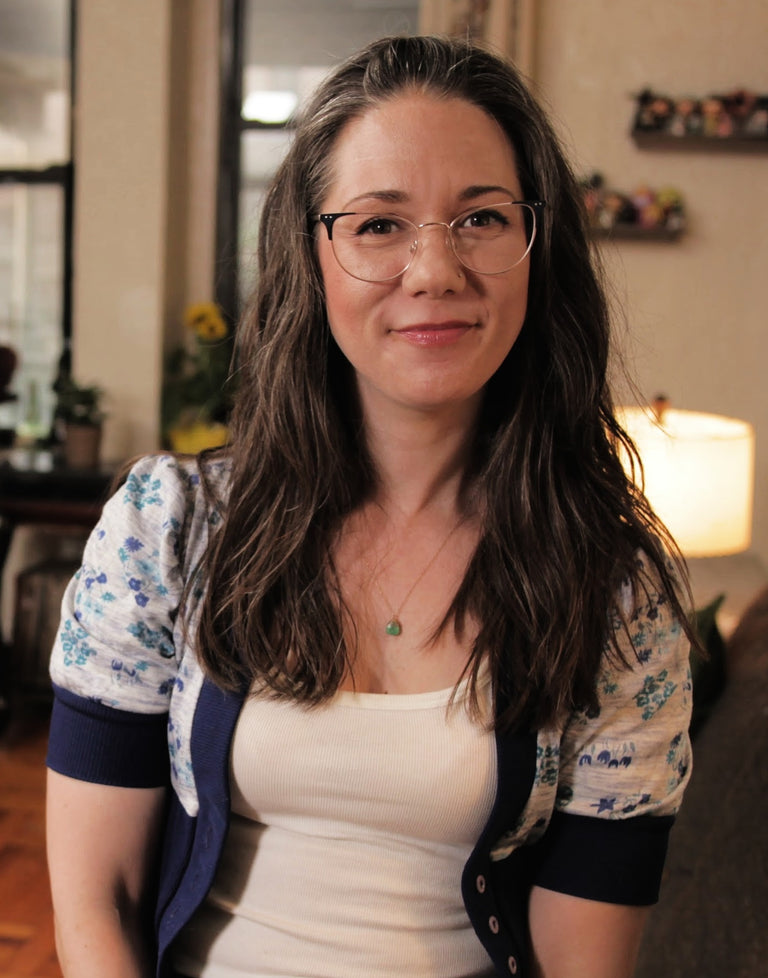Radiation therapy can bring along with it several side effects, including hair loss. For many, hair loss is one of the most daunting and distressing aspects of their cancer treatment.
Understanding the connection between radiation and hair loss, along with what you can expect during radiation treatment, can be a proactive way to support yourself through a very challenging time. Read on to uncover why radiation causes hair loss, how long it lasts and how to manage it, including what products you should use to combat hair loss.
#include-related-slider#
What Is Radiation Therapy?
Radiation therapy is a cancer treatment that uses high-energy radiation from X-rays, gamma rays, neutrons, protons and other sources to kill cancer cells and shrink tumors.
This cancer therapy is most commonly given using a machine that beams radiation into targeted areas of the body. However, it can also be administered internally via radioactive material placed into the body near the cancer cells or tumor, or it can be delivered intravenously.
Why Does Radiation Cause Hair Loss?
Hair loss is one of several potential side effects of radiation therapy. Side effects from radiation vary from person to person, and not everyone who receives radiation will experience noticeable hair loss.
Like chemotherapy treatments, radiation therapy is meant to destroy cancerous cells, but it can also impact other healthy cells and structures in your body, like your hair follicles. Typically, hair loss is limited to the area being treated, so if you’re receiving radiation therapy on an arm or leg, you won’t lose the hair on your head.
That said, chemotherapy drugs are often given with radiation. So if chemo is part of your treatment regimen, you might experience chemotherapy-induced alopecia on your head and other parts of your body. Chemotherapy often results in temporary but complete hair loss.
What Kind Of Hair Loss Does Radiation Cause?
The kind of hair loss you will experience depends upon the type of radiation you get, how much you get (the dose, strength or intensity of the radiation), the part of your body that is receiving the radiation and your general health and unique physiology. If you will be receiving radiation to the head (called cranial radiotherapy) and/or neck, hair loss on the head is to be expected.
As mentioned, radiation (particularly external-beam radiation therapy) will typically cause hair thinning and/or loss to the body part that is being treated. How much hair loss you might experience can be impacted by several factors, like the size of the area being treated and the dose of radiation being given. You might see hair thinning and/or lose your hair not only at the site of radiation treatment but also on the reverse side of the body, where the radiation beams exit the body.
Hair can become thinner, weaker and break over the course of your radiation therapy. However, more often, hair loss is sudden and comes out in clumps.
Also: Why Does Chemo Cause Hair Loss?
When Does Radiation Hair Loss Start?
This can also vary from person to person. “Hair loss can take place during the treatment period or directly following,” said Dr. Jae Pak, a hair restoration specialist and founder of Jae Pak Medical.
For some, hair loss occurs quite suddenly, and it can be quite drastic, while others might lose hair within a few weeks of starting treatment. Hair loss might also continue throughout the treatment, and it might continue for a little while once the treatment is completed.
How Long Does Radiation Hair Loss Last?
This also depends on several factors, including the specifics of your radiotherapy treatment plans and your body’s natural rhythm for healing once radiation is complete.
“The hair normally starts growing back within a few months after the radiation therapy is completed, but in some cases, hair follicles suffer permanent damage,” said Dr. Pak.
With low doses of radiation, alopecia is often temporary, and you can expect to see regrowth happen within a few months of ending cancer treatments. With a higher radiation dose, however, you might notice a greater alopecia severity, and it might take longer to see hair regrowth. In some cases, hair loss might be permanent. Ask your cancer care team or radiation oncologists about the treatment dose you are receiving and if any hair loss may be permanent.
Some radiation patients might experience long-term and even permanent hair loss, called persistent radiation-induced alopecia (pRIA). Persistent alopecia following radiotherapy is not well understood, though initial research suggests it is dose-dependent and typically seen in patients receiving very high doses of radiation. It seems to cause permanent damage to follicles that's similar to forms of scarring alopecia like central centrifugal cicatricial alopecia and some forms of lupus. It’s estimated that 60% of radiation patients experience pRIA.
Does Radiation Cause Permanent Changes to the Hair?
Another important thing to keep in mind is that each patient's physiology is unique, and it’s impossible to guarantee hair regrowth — even at lower doses of radiation therapy. In many cases, hair growth resumes within a few months of ending radiation, though, like with chemotherapy, the texture of your hair might change along with your hair density.
Tips For Managing Radiation Hair Loss
While there is no way to avoid the hair loss that might come along with radiation, there are some great tools in your hair health toolkit that can make the process a little easier and help hair grow back in the most optimal way possible.
Plan Ahead
Many cancer patients elect to shave their hair off ahead of radiation therapy to make the hair loss process more manageable. If you expect to lose the hair on your head, you might also want to look into the wide variety of options out there for wigs, scarves and other head coverings. And, if you want to embrace baldness, remember to protect your scalp from the sun and other elements with proper head coverings.
Be Gentle
Tender loving care is vital both during radiation and while your hair grows back after treatment. During radiation, and for a period following cancer treatment, your skin might be irritated and sensitive, so try to avoid tight-fitting clothing or coverings, and be really gentle when cleansing or touching the affected skin. Consult with a doctor before using ointments, oils, lotions, or any topicals on the skin during treatment and as the skin heals afterward.
Once hair starts to regrow, treat your scalp, the new hair and any remaining hair with extra care and pampering: no tight hairstyles, no heat styling and no chemical treatments. Sleep on a friction-reducing pillowcase and use super soft hair ties, if needed.
Take A Holistic Approach To Hair Health
Support your body’s ability to heal and regrow healthy hair by taking a holistic approach. By focusing on tools in your toolkit that are good for your general health, you can also support your scalp and follicles. Exercise, sleep, stress management and a healthy diet are important pillars for whole-body health.
“To help promote natural hair growth after radiation therapy, I recommend biotin,” shared Dr. Pak. Start eating more biotin-rich foods such as sweet potatoes, mushrooms and avocados,” he added.
The Takeaway
Hair loss can be a possible side effect of radiation treatment, and radiation-induced alopecia tends to be constrained to the area being treated. The hair loss typically starts within a few weeks of treatment and can even continue after treatment ends, though hair regrowth should begin within a few months after treatment ends.
Your hair loss and regrowth experience will be unique to you and will be impacted by factors like the strength and duration of the radiation therapy you receive. Alopecia severity varies from person to person, and some cases of hair loss can be permanent. While you can't prevent hair loss, there are ways you can make the process easier and help your body regrow healthy hair. If you don’t see new hair growth within a few months of finishing therapy, speak to your doctor.
More From VEGAMOUR
- How Long Does It Take for Hair to Grow Back?
- How Often You Should Wash Thinning Hair
- What Causes Sudden Hair Loss?
Photo credit: Michelle Leman/Pexels
Back


















